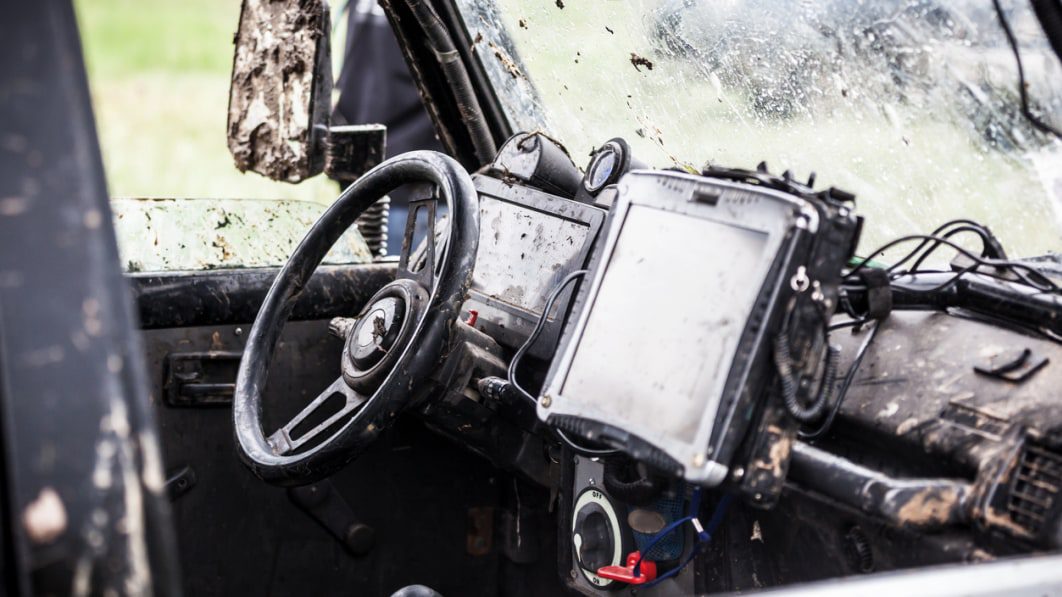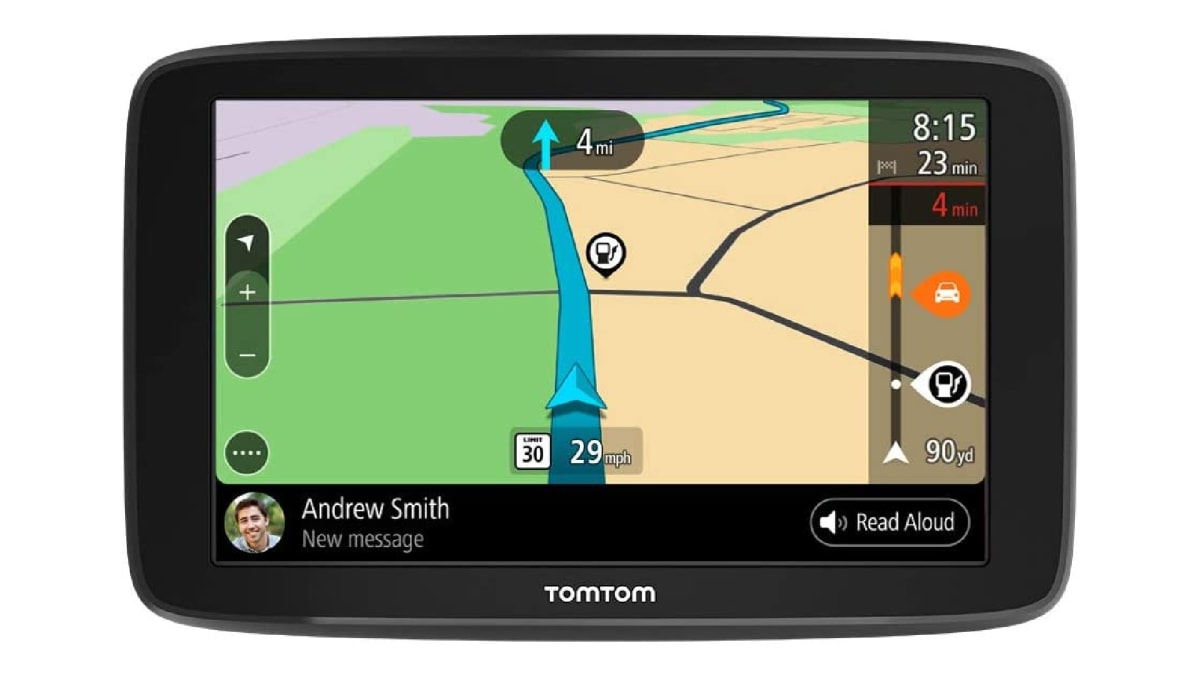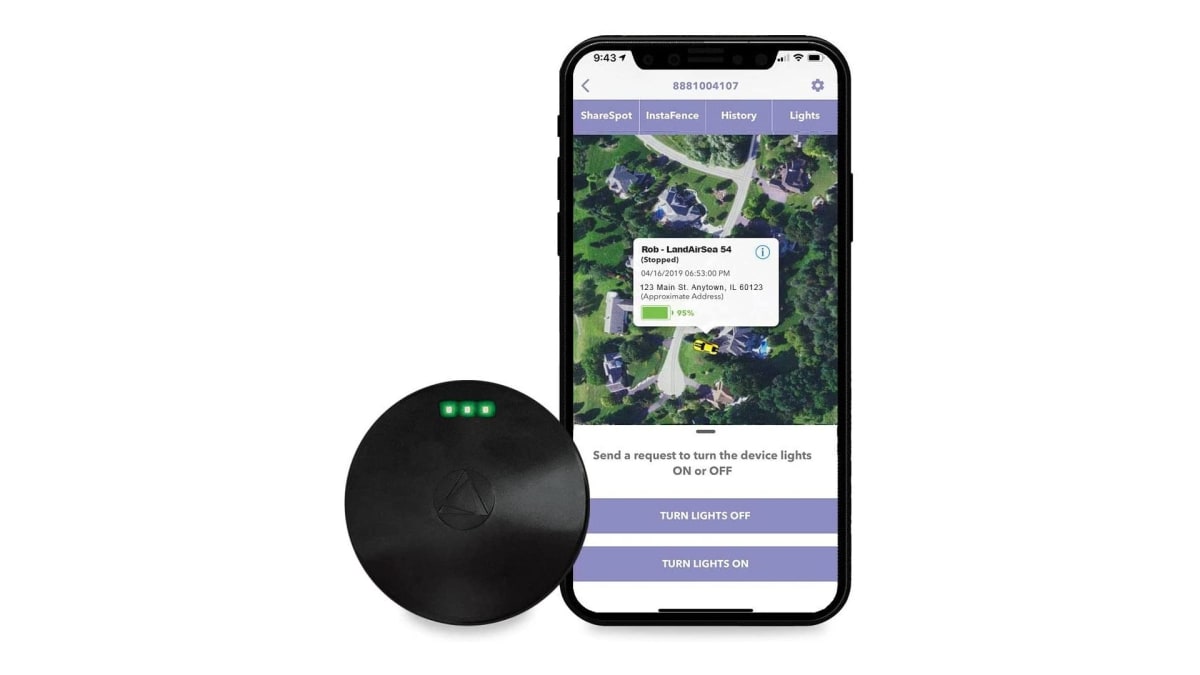Find the best off-roading GPS to help you navigate the outdoors

Autoblog is not affiliated with the brands featured in our articles, but when you make a purchase through links on our site we may earn a commission.
Looking for a device that can guide you where you want to go, even while off-roading? Try the top off-roading GPS picks of 2022 and never get lost! Smartphones may be able to guide the way when you’re on the roads, but if you’re traveling into uncharted territory then you’ll need something a bit more capable of helping you with directions. An off-roading GPS can take you exactly where you need to go, and it can also take you places to make memories that will last a lifetime.
If you’re new to off-roading or have never used anything but your phone’s GPS, then you’re in for a treat, because an off-roading GPS can do so much more than simply show you the way. Not sure which off-roading GPS to opt for? Relax, because we’ve you covered. This guide will explain everything you need to know about off-roading GPS and why it can make off-roading and traveling to unknown places such a joy, and we’ve also selected a few of our favorite off-roading GPS picks of 2022 to help get you started on the trail.
Top off-roading GPS worth considering in 2022
Garmin Zumo XT Off-roading GPS: Premium pick
Buy on Amazon
Garmin GPS is a well-known name in the GPS industry — and for good reason. This GPS tracker comes in bright HD resolution that can be used in both landscape and portrait mode, and it’s rain-resistant and has passed military drop tests, making it a great choice for rugged use. This off-road GPS will read instructions aloud, so there’s almost no risk of an accident while trying to drive and navigate at the same time. With direct access to the BirdsEye Satellite Imagery, you’ll be able to download routes to your device without having to pay anything extra for this convenience. A great thing about this off-road GPS is that it finds road options to make your ride more thrilling and fun — no more boring treks with this bad boy. You can also record all the routes you take and share them with others — spread the off-roading love!
Pros
Glove-friendly touchscreen
Spoken commands make for easier navigation
No annual subscription is required for satellite imagery
Record tracks for future rides
Cons
The device’s mounting base may come off
Tomtom Go Off-roads GPS: User-friendly

Buy on Amazon
This TomTom off-road GPS is one of the top choices on the market. This GPS can help you get accurate information and navigation through planned and intelligent routing, and it also relays alerts about speed limits, traffic updates, and other live services. This GPS will also update its maps of the US, Canada, and Mexico, and with the presence of Wi-Fi you won’t need a computer connection for software updates — they’ll happen directly on your system. This off-road GPS features its very own RoadTrips community that helps you discover new experiences on unknown roads, and if you’re an enthusiastic off-roader you’ll probably love being a part of a group that shares your interest. You can sync the community to your device and explore places that you’ve never been to, making off-roads trips a lot more fun and exciting.
Pros
Touchscreen offers a clear, easy view
Updates maps at no extra charge
Built-in Wi-Fi helps with direct downloads
Can read text messages out loud
Cons
Cannot be used as a standalone device
LandAirSea 54 off-road GPS: Another great option

Buy on Amazon
If you’re in search of a great off-road GPS, then the LandAirSea 54 GPS Tracker might just be the perfect one for all kinds of usage. Its ultra-compact design has a built-in magnet for easy installation to help you get where you want to go when you want to get there. This off-road GPS is 100 percent waterproof, so you won’t have to worry about riding through puddles or even taking it out on the open sea. It can easily attach to vehicles and you can also drop it in your pocket, bag, or even a small purse. Another cool thing about this GPS tracker is that it connects to Google Maps and offers you real-time mapping and tracking either online or on the SilverCloud smartphone app.
Pros
Versatile — used for vehicles, assets, and people
Fully waterproof design
Easy to carry around
Provides text and email tracking alerts
Cons
Possible inaccurate tracking at low battery levels
Buying guide: Off-roading GPS
Off-roading can be an awesome experience if you’re sure of your routes, and this becomes even more important if you’re riding solo or with inexperienced riders. Now that you know some of the top off-roading GPS models in 2022, here are some things you should keep in mind when getting ready to make a purchase:
Off-roading GPS types
There are three basic options when it comes to an off-roading GPS:
In-dash GPS
These are the GPS devices that are already built into your vehicles. Many modern varieties of cars, bicycles, and motorbikes come with inbuilt routing systems of their own. A major reason why most experts don’t rely on these is that they’re locked by the provider and only have limited maps and/or software. This means you won’t be able to take advantage of newer routes or roads that aren’t your typical run-of-the-mill places — heck, you can’t even take them out of your vehicle and carry them with you on the street, which is why an in-dash GPS isn’t always the most useful device.
Smart devices
Smart devices are your regular smartphones and tablets, and these have navigation apps that can help you locate clear routes and roads. Navigation apps are usually free and can easily be downloaded to your device, but a major problem with smart device navigation apps is that they can’t function without network coverage. This means using a lot of battery life, which can be an issue on long rides.
Portable GPS
Portable GPS, like off-roading GPS, comes with a variety of features, including touchscreen, HD quality, and smaller displays, and they can either be carried in hand or hooked to your vehicle. They usually have immense battery power and are connected to satellites for proper GPS navigation, and more modern models also feature an altimeter, compass, and sometimes even satellite phone capabilities.
The reason why the portable GPS is such a favorite among off-roaders is that they’re very easy to use, they work even when there’s no network connection and they can give you fun routes to explore that a normal GPS simply can’t offer.
Things to look for in an off-roading GPS
Some things an off-roading GPS simply cannot do without are proper mapping features, tracking logs, Wi-Fi, and Bluetooth connection. Other things can add some fun to your off-roading adventures, and here are some must-have features to keep an eye out for when shopping for an off-road GPS:
Mapping
Topographic mapping helps you see the terrain of the place you plan to drive to, which is particularly helpful when you’re an off-roader. With this kind of mapping, geological features become visible and you know exactly what you’re getting into. This GPS feature also keeps track of national park tracks and other off-road tracks so you’ll know where your vehicle can go and where you’ll need to walk on foot.
Fun pinpoints
The points of interest feature allow you to look up all the places that can be fun on your ride, where you can get out and explore, and where you can take full advantage of off-roading. This feature highlights everything from campsites to national parks, historic locations, and even gas stations. When your GPS has this option, you can make an unscheduled stop and simply bask in the glory of your ride.
Four-wheel drive trails
The reason why experts often opt for an off-road GPS is that it points out trails for four-wheel drive (4WD) journeys. If there’s a particular spot you want to visit, all you’ll need to do is enter the longitude and latitude of your destination and the GPS will show you how to get there.
Routes that have been frequently used by off-roaders and are considered safe will be the ones you’ll see on your device, so there’s little chance of happening upon a dangerous trail. All of these navigations are shown in easy-to-read and straightforward graphics so you can check them out while driving your off-road vehicle.
Exact navigation
One of the most useful features of off-roading GPS is turn-by-turn navigation, which means your GPS device will call out directions so that you don’t have to look at the screen while driving. This makes driving simpler on more difficult terrain and ensures that you take the safest route possible, and it also reduces the chances of a collision or any other kind of accident.
Tracking logs
If you’re a regular off-roader, you probably like the idea of tracking the routes you’ve taken through different areas. Waypoint memory and log-tracking features allow you to save your routes so that if you do get lost, you’re able to easily retrace your path.
You can also share these routes with others and save some scenic routes you may want to visit again. All these logs can be recorded and then easily downloaded to your laptop.
Portable memory
Portable memory, as the name suggests, helps you store more data and tracking logs. It’s available in an SD chip or a microchip that can be removed from your GPS device, plugged into your laptop to download your logs, and then reinserted into the device. It functions the same way a smartphone or camera SD chip would, increasing the memory of your GPS device and helping you save as many routes and destination points as you want.
GPS as a compass
This may come as a surprise, but a GPS device for off-roading can also function as a compass. It can come in handy, especially in emergencies where you may need to be rescued, as the GPS device will triangulate your position. Many devices already come with preloaded maps, so you won’t need to worry about getting lost. The topographic view can help you navigate places where ground vision is obscured, and in simple terms, you won’t be completely lost in the woods!
Off-Road GPS FAQs
Q: Why is GPS even important?
It may seem like you don’t need a GPS, but when you travel off-road you might need all the help you can get. Newer off-road GPS models can help you keep track of your trail and also discover new ones, and you can easily download data available online that’s mapped to specific landmarks. This information is also available from users who have already been to the place you’re traveling to.
Another great feature of an off-road GPS is that they help a large group remain in sync. Everyone can follow the same trail and communicate with each other without losing signals, and this means there’s almost no possibility of getting lost.
Q: How does off-road GPS work?
The Global Positioning System (GPS) is a group of satellites that orbit the Earth. What was once a specialized US military tool has now been handed over to the average person to help them find out how to get to any location they wish. As complicated as it may sound, modern GPS is very easy to use. You can be anywhere in the world and at least four GPS satellites will be within range to pick up your position and allow you to check where you are and how to get to wherever you want to go next.
These satellites send out regular positions, which your GPS receives and can guide you in your navigation. The whole point of GPS when off-roading is to keep you on the right trail without getting lost in unknown territory.
Q: Are all the extra functions of the GPS even needed?
If you’re new to GPS use, it may not seem so. Why would you need a fish finder when you’re off-roading, right? But the thing is, a fish finder isn’t the only extra feature included on your off-road GPS — it also comes equipped with enhanced mapping, quick speed, extra battery life, and the ability to work offline when you’ve lost signal, a responsive touchscreen and more.
Yes, some of the features may seem a bit unnecessary, but others can come in handy when you’re in unknown lands trying to find a way home.
Q: Aren’t smartphones enough for navigation?
It’s true that smartphones have become extra smart these days and are used by pretty much everyone, but does that mean they’re a suitable replacement for off-road GPS? If you ask an expert, the simple answer would be no. Yes, smartphones offer extensive GPS tracking and landmark mapping, but an off-road GPS doesn’t lose signal where smartphones will.
As an expert off-roader would know, when you’re off-roading, chances of getting lost or venturing into the unknown are high. This is why a tool that can accurately guide you can be such an important thing to have. Off-roading GPS is specifically designed to help you find your way, even when you’re offline or can’t get a signal. An off-road GPS’s battery time is also huge compared to the battery life of a smartphone, so you’ll be able to make use of it for much longer than you would be able to use your phone.



